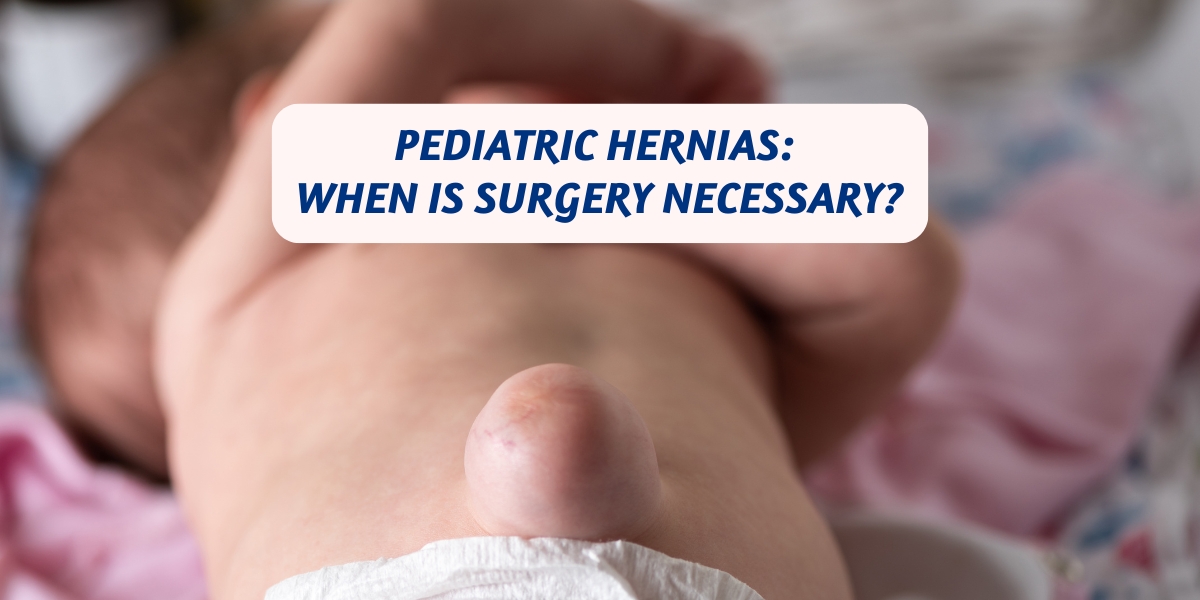Pediatric hernias are a common concern for parents, often leading to many questions about symptoms, management, and the necessity of surgery.
What is a Pediatric Hernia?
A pediatric hernia occurs when an organ or tissue pushes through a weak spot in the abdominal muscles. This can create a visible bulge, often in the groin or belly button area. There are several types of hernias in children, with the most common being:
- Inguinal Hernia: This type occurs in the groin area and is more common in boys.
- Umbilical Hernia: This type occurs around the belly button and is more common in infants.
Signs and Symptoms
Many pediatric hernias are noticeable, but some children may not show obvious symptoms. Here are some common signs:
- A noticeable bulge in the affected area, especially when the child is crying, coughing, or straining.
- Discomfort or pain, particularly with activity or when standing.
- In severe cases, symptoms of strangulation may appear, such as severe pain, vomiting, and inability to pass stool. This requires immediate medical attention.
Managing Pediatric Hernias
In many cases, hernias in children do not require immediate intervention and can be monitored by a healthcare provider. Regular check-ups can help in assessing whether the hernia is growing or causing discomfort.
Observation
Most pediatric hernias can simply be observed, especially if they are small and the child is not experiencing any symptoms.
Lifestyle Modifications
Encouraging your child to avoid heavy lifting and straining can help manage symptoms. Keeping an eye on weight and encouraging a balanced diet may also be beneficial.
When is Surgery Necessary?
While many hernias can be monitored, surgery is often recommended in the following situations:
-
Size and Symptoms: If the hernia is large or growing, or if the child experiences significant discomfort, surgery may be necessary to prevent complications.
-
Incarceration: If the hernia becomes incarcerated (stuck), it can cut off blood supply to the tissue. This condition requires urgent surgical intervention.
-
Strangulation: This is a critical condition where the blood supply to a part of the intestine is cut off. Strangulation can lead to severe complications, including tissue death, and requires emergency surgery.
-
Parental Preference: Some parents may choose surgical repair for peace of mind, even if the hernia is asymptomatic.
Managing a pediatric hernia involves careful observation and understanding when surgery becomes necessary. If you notice any signs of a hernia in your child, it’s essential to consult with a pediatrician or a pediatric surgeon. They can help determine the best course of action based on your child’s specific situation. Early intervention can make a significant difference in preventing complications and ensuring your child’s health and comfort. Consult Dr. Saurabh Tiwari, a renowned pediatric surgeon in Goregaon, Malad, Andheri, and Jogeshwari, is dedicated to providing exceptional care for children.




